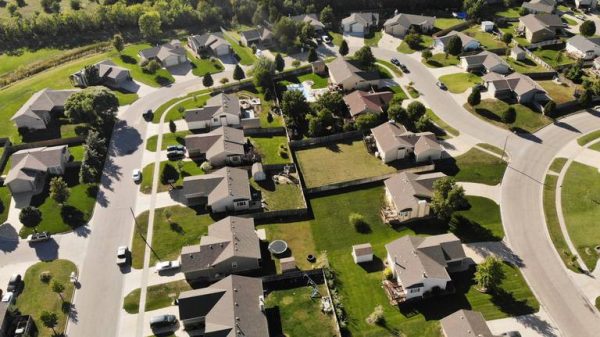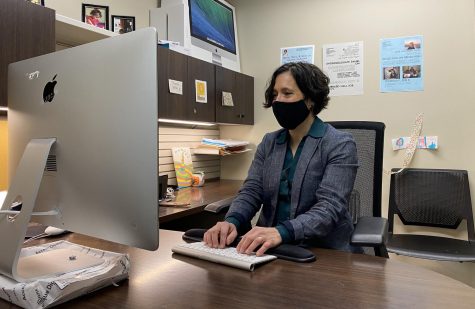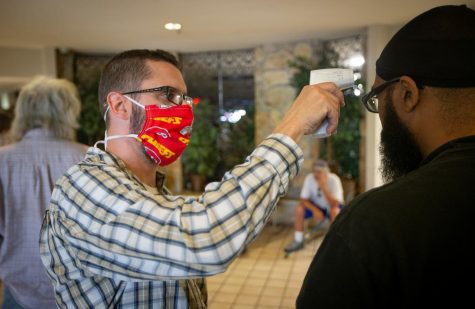What you missed: WSU news from over break
Muma named acting president, Bardo in rehabilitation facility
Provost Rick Muma was named Wichita State’s acting president on Jan. 2. President John Bardo, 70, has been moved to a rehabilitation facility. He was hospitalized in November, and is currently undergoing physical therapy after a second surgery to treat a chronic lung condition.
Chief of Staff Andy Schlapp said Bardo is eager to remain involved in university operations but needs to focus on his recovery.
“The difficulty is telling Dr. Bardo his job at this point in time is to get better and take care of himself,” Schlapp said. “That’s got to be his goal and his focus. I don’t know if he’s accepted that that’s his goal and focus.”
Schlapp hinted that Bardo will have to make a decision about whether or not he continues to serve as president.
“He wants to come back to work but he may decide that he — I don’t know. He has that right to determine that time,” Schlapp said.
Student fee referendum date set
The student referendum on a $6 per credit hour infrastructure fee hike will be held from March 4-6, WSU Vice President for Finance and Administration Werner Golling announced for the first time at a WSU Board of Trustees meeting.
The proposed hike would allow the university to bond $38.6 million — $20 million of which would go toward the construction of Woolsey Hall, the new business school on Innovation Campus.
State law requires WSU to hold a referendum before raising student fees, but Student Body President Kenon Brinkley told The Sunflower last month that students can expect to pay for facilities upgrades even if the initial referendum fails.
“They’re going to push through with it one way or another,” Brinkley said of the fee hike. “Now, the way that they push through with it is subject to change.”
University administrators have signalled that they will likely reassess infrastructure priorities and put forward another student fee proposal if the referendum fails.
Golling said a program-specific business school fee would be “a very practical option” if the referendum fails.
Campus YMCA hits fundraising goal, gets name
The Greater Wichita YMCA announced last month that it has achieved its fundraising goal to build a facility on WSU’s Innovation Campus.
For a second year, students are paying a tiered Health and Wellness fee to fund the operating cost of the facility, which will be named The Steve Clark YMCA and WSU Student Wellness Center.
Clark, a former Greater Wichita YMCA president and current board member, co-chaired the year-long fundraising project to pay for the construction. A WSU alumnus who received the WSU Board of Trustees Award for outstanding service to the local community in 2007, Clark also chaired the 2012 search committee that selected John Bardo as a finalist for the WSU president job.
In 2015, when The Flats was meant to be a university-owned and operated residence hall, Clark was listed as a member of its development team. His name was later removed.
Oilman donor receives honorary degree
Wayne Woolsey, the Wichita oilman who gave WSU its largest-ever cash donation in May, received an honorary degree at WSU’s fall commencement ceremony in December.
It’s against state policy to award honorary degrees for “philanthropic activity,” but the university maintains that Woolsey’s generosity was not a motivating factor in bestowing the honor upon him.
Woolsey donated $12 million with a lead gift of $10 million towards the construction of a new business school building on Innovation Campus. The building will be named Wayne and Kaye Woolsey Hall, in honor of the 87-year-old and his wife.
“Mr. Woolsey’s gift to WSU rightfully is not one of the considerations for being awarded an honorary doctorate,” WSU Director of News and Media Relations Joe Kleinsasser wrote in an email. “Making a generous donation, however, does not eliminate Mr. Woolsey or anyone else from being eligible to receive such an honor.”
President Bardo’s nomination letter lauds Woolsey for introducing hydraulic fracturing techniques to Kansas. Hydraulic fracturing, commonly known as “fracking,” is an effective but controversial practice that has a long-lasting negative impact on the surrounding environment.

Matthew Kelly is a former editor-in-chief and managing editor for The Sunflower. Kelly graduated in 2020 with a bachelor’s degree in political science...
















